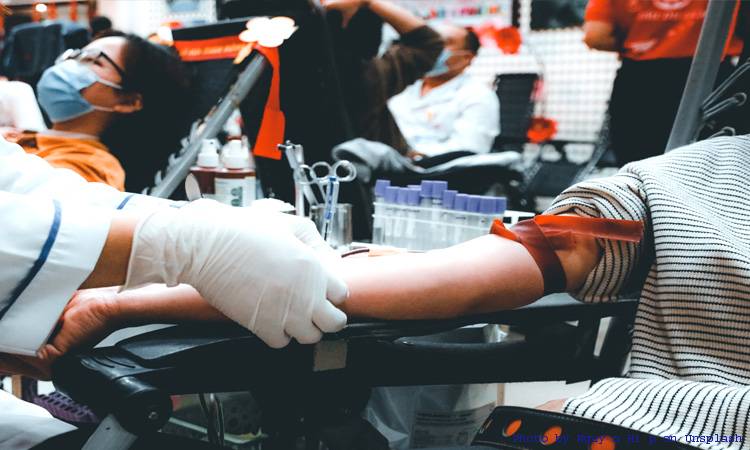
Donating your blood is one of the most incredible charities, a noble act that must be encouraged in society to help fulfil the constant needs since blood products can not be stocked or manufactured.
Who needs blood?
1) Those who lose ample amounts of blood during accidents or emergencies.
2) Haemophilia, Thalassemia, Cancer, severe anaemic patients, or other terminal illness.
3) Women who face serious complications during pregnancy or while giving birth.
4) Those who lose blood during major surgeries.
Instructions regarding blood donations
Making blood donation can sometimes be confusing and intimidating, you should make sure you meet the requirements and should keep the following points in mind before donating blood:
1) Age should be at least 16 years
2) Weight should be at least 110 pounds.
3) You should be healthy and feeling well.
4) You can donate blood every three months.
Blood screening
It is recommended by WHO to implement a testing and screening system for all blood donations. Donor blood is fully screened for any lethal and contagious viruses or organisms such as HIV, Hepatitis B and C, Syphilis, Zika Virus, Malaria etc. The report is then sent to the donor.
Process of donation
Whichever organisation you donate blood to, make sure you read their requirements. You may be asked to make registration and get an appointment. It is beneficial for you to take an iron-rich diet during the days before donation. Red blood cells have a 42 days shelf life, and platelets must be used within 5-7 days.
Medical personnel will take a brief history and perform a medical examination. You can be asked about travel history, medication, sexual activities. After blood screening, a donation will be made, and one pint will be drawn using a sterile needle from the vein of your arm. This process may take 10 minutes. It could take 2 hours if you are donating platelets. It is better to raise your arm upward and put pressure on it. The phlebotomist will put a bandage on the site. Take refreshments after the donation.
However, you can feel dizzy and weak after the donation, and it is recommended to rest for the next 24 hours and keep yourself hydrated.
Take away!
Donating blood has many benefits. It lowers the excessive amount of iron in the blood. Research has found that those who donate blood regularly have better cholesterol and triglycerides levels. In this way, a human gets to help others with their blood, which has religious and spiritual benefits.

Dr Hafsah Jawed
The author is contributing writer at Dental News Pakistan and can be reached at hafsah.jawed.7@gmail.com

